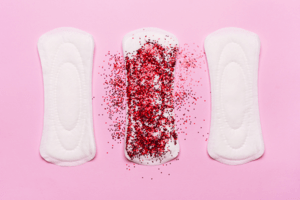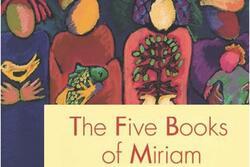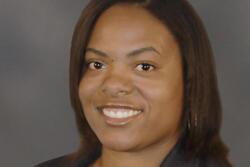Free the Period
Last year when I was a senior at Brookline High School, I wrote an op-ed in the student-run newspaper about the stigma and cultural shame surrounding menstruation in our society. The article caught the attention of local legislator Rebecca Stone, who took action to combat some of the concerns I voiced in the piece. This past May, Brookline became the first municipality in the country to provide free menstrual products in every public restroom.
Ms. Stone’s response to my original article, as well as the public support for the (now passed) warrant, goes beyond anything I could have imagined. Among many things, this experience has renewed my faith in the power of storytelling.
I first used writing as a form of activism as a Jewish Women’s Archive Rising Voices Fellow in 2015. During writers’ retreats, my cohort, a group of twelve articulate and voracious high school girls, devoured all the feminist literature we could find and used it to fuel our own written work for the JWA blog. A few months into the fellowship, I noticed something: For what felt like the first time, our writing didn’t exist in a vacuum. Once our blog posts were published online, we would receive all sorts of responses. Sometimes they were messages of agreement from people who were nothing like us; sometimes we received visceral disagreement from people whom we assumed were exactly like us. Both types of responses were equally important. I quickly learned that sometimes, the best measure of the quality of an article is the quality of the dialogue it inspires. An articulate piece of writing will prompt others to examine their own beliefs, and it was magical to watch our posts spark discourse.
High school was also when I learned how to use stories in the service of lobbying. I had several mentors in this endeavor, and their advice was the same: Make it personal. Statistics are great for showing the big picture, but numbers are even more effective when a legislator can see a face behind them. When my peers and I visited political offices in downtown Boston and in Washington, D.C., we became comfortable telling stories about our experiences with the healthcare system and sex ed in school. Even though these stories were personal, our sharing was in the service of something greater. At least for me, this completely justified any discomfort I felt.
The seeds for the menstruation article were planted when I participated in an activity for a group of campers at the sleep-away camp where I was a counselor. The campers were thirteen and fourteen-year-old girls about to start their freshman year of high school. The campers could ask a group of counselors any questions about what high school was like, and we would try to assuage their fears as much as possible. The discussion turned to periods, and after sharing some horror stories about inopportune bleeding, the other counselors and I inevitably began telling the girls where we would hide our tampons—in sleeves, our shoes, pencil cases. But then, another counselor spoke up.
“I don’t understand why everyone feels like they have to hide their tampons,” she said. “We should just be able to get one and go to the bathroom.”
In that moment I realized how complicit I was in society’s system of menstrual stigma and period shaming. As soon as a young person gets their period, they are trained to experience it covertly and discreetly. Even when talking to other people who menstruate, we speak in euphemisms and in hushed voices. We are trained to see the act of menstruation itself as disgusting, inappropriate, and shameful, even though it’s not something we have any control over. The more I thought about it, the more baffling it was: Why was I (and almost everyone I knew) afraid to be caught holding a tampon?
Periods, as well as sexual and reproductive healthcare, have been stigmatized for far too long. This comes with consequences. For decades, period stigma has barred menstruating people from proper healthcare, adequate economic support, and in some cases, even their education. We all must embrace the discomfort of breaking the silence until the shame disappears completely.
I have been trying to work on this myself. Since the publication of the article in my high school newspaper, people have come up to me to talk about their periods. Everyone seems to have their own menstruation horror story, especially when it comes to their first period. (Mine, for instance, was when I was twelve and at sleep-away camp for the first time—my mother will never forget that letter home!) Across my community, the country and even the world, it is wonderfully empowering to watch this new wave of menstrual activism take hold. I am incredibly grateful for the work Rebecca Stone and other local legislators and activists have done to pass the historic warrant in Brookline and other legislation across the country. Someday, tampons will be as common a healthcare product as toilet paper and paper towels—and that someday is looking sooner and sooner.
Although I’ve only recently begun to understand the power of storytelling, writing as activism for social change is nothing new. The #MeToo movement is almost entirely grounded in survivors of sexual assault telling their stories. Recent laws restricting access to abortion have inspired many public figures and everyday people to share their experiences. Stigmas are perpetuated when the silence surrounding an issue remains unbroken. However, if we collectively refuse to conform to this shame, the stigma will eventually crack, ultimately securing us a more tolerant and empathetic society.







